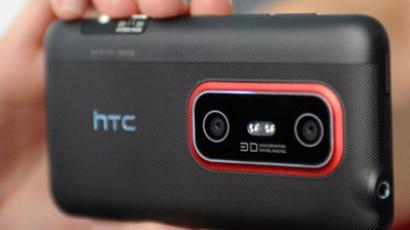UK admits spying on Russia with the help of a fake rock
The UK has admitted for the first time it was spying on Russia six years ago with the help of a fake rock. The adviser to the then British PM Tony Blair called the incident embarrassing.
“They had us bang to rights,” Jonathan Powell told the BBC in an interview. He added that Russians must have known about the spying hardware for some time and exposed it at a politically opportune moment.In January 2006, a report on Russian television claimed there was proof that British spies were using electronic equipment hidden inside a fake rock to exchange information between agents and embassy staff.“Ever since I made that program six years ago – I’ve been haunted by everyone,” says Arkady Mamontov, a Russian TV journalist who made the film revealing details of the spy scandal. “I was called names, people laughed at me. Now I want to thank the man who admitted to the English special service’s operation. We were right after all!”According to the report, an agent would pass by the rock and download data from his portable computer, while a diplomat would later collect it in a similar way. Russia's Federal Security Service (FSB) have identified four Britons involved in the spy ring.“At first I had some doubts that the video was fake, or a game of some kind. So I double- and triple-checked through various sources, to be sure that it was real,” Mamontov adds.Christopher Pierce, the diplomat who was said to have installed the secret link, was also responsible for financing Russian non-governmental organizations with British grants, as was one of the other alleged spies, Mark Doe.“It was all about missile/rocket technologies. And the very same, the spy Doe was a cashier for several NGOs, including the Moscow Helsinki Group,” Mamontov says. The report implied that there may have been further links between the two sides of their jobs in Russia, and said the spy scandal “discredited the fine idea of NGOs.”Britain expressed “concern and surprise” over the allegations at the time. The “spy rock scandal” was taken with skepticism by many people, including Russians. They said it was either a scam or simply blown out of proportion in what was described as a Kremlin assault on NGOs.A month before the report was made public, Russia introduced a new law tightening up control over such organizations. Critics accused the Russian authorities of a “conspiracy mentality” in suspecting the infiltration of spies into human right groups and other NGOs.The FSB said it had chosen to leak information on the spy ring to journalists only after it had failed to settle the dispute with its British counterpart discreetly. It denied allegations that the disclosure was aimed at undermining NGOs operating in Russia.There have been a number of spy scandals between Britain and Russia. The latest saw a Russian woman winning her fight in London against extradition, after she was accused of being a honeytrap for a British MP.














